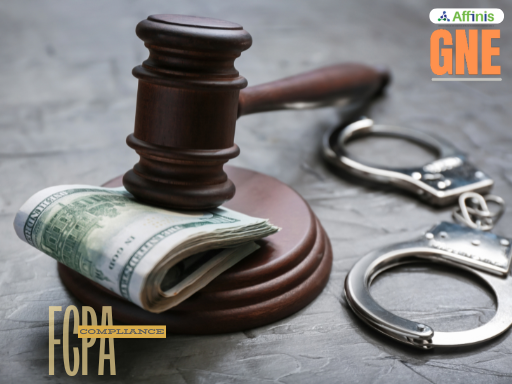The Hidden Cost of Bribery
Bribes may often appear as an easy shortcut to achieving business objectives.
However, beneath the surface lies a web of hidden costs and long-term consequences for the economy and ultimately back to you as a participant in the economy.
Of course, there is the obvious cost to you and/or your employer. From hefty penalties for violating FCPA regulations to irreparable reputational damage, bribery creates a minefield for companies its employees, vendors and even entire industries. With global scrutiny tightening, understanding these has never been more critical, especially in areas like gifts and entertainments compliance approval and anti-bribery efforts.
But there is also a cost impact graver than the immediate impact outlined above.
But lets start with basics.
What is bribery, and why does it matter?
Bribery involves offering, receiving, or soliciting something of value to influence decisions or secure advantages. In corporate contexts, this often includes lavish expenses incurred on behalf of someone else, like hospitality (expensive meals, spa treatments or luxurious hotel stays), extravagant entertainment (like concert or sports tickets), or even quasi-monetary payments (such as gift cards). Such acts breach anti-bribery compliance laws, such as the foreign corrupt practices act (FCPA), and can lead to devastating consequences.
In the United States, for example, the FCPA governs corruption involving foreign officials, making it illegal to provide anything of value to gain a business advantage. Other global regulations, such as the Bribery Act 2010 in the United Kingdom defines bribery as “offering, promising, or giving a financial or other advantage to a person to induce or reward a person to perform a relevant function or activity improperly” and also impose strict guidelines. Failing to comply not only exposes companies to financial penalties but also risks shareholder trust, legal battles, and employee morale.
The BBB or the Better Business Bureau in the United States considers bribery a serious ethical violation; consumers report a business engaging in bribery will be investigated and action potentially taken against the company
How do organizations manage compliance with FCPA and similar regulations?
Organizations issue policies for compliance to their employees, very often requiring them to take pre-approval for all gifts or entertainments given as well as received.
Such policies are variously known as gifts and entertainments policies, or gifts and expenses policies or gifts and hospitality policies.
These are supported by procedures that often include compliance software like Affinis(GNE) that require a structured set of prior reviews accompanied by approval flows.
The Obvious Costs of Bribery
1. Financial Penalties
Violations of FCPA regulations and other anti-bribery laws can result in massive fines. Global corporations have paid billions in penalties for corruption cases. Beyond these fines, legal fees and settlement costs add to the financial burden, making bribery an expensive misstep.
2. Reputational Damage
Bribery erodes trust among customers, stakeholders, and employees. Once a company is linked to unethical practices, its reputation takes a nosedive, leading to declining revenue, reduced market value, and loss of strategic partnerships.
3. Operational Disruptions
When bribery scandals emerge, organizations face prolonged investigations and disruptions to normal business operations, distracting away from management, productivity, and growth.
4. Compliance Costs
Failing to adhere to gifts and entertainments policies forces companies to invest in overhauling compliance systems. Where tools like anti-bribery compliance software or gifts and hospitality compliance software are not used, the burden increases exponentially to prevent future violations.
5. Employee Morale and Retention
Employees lose confidence in an organization engaged in unethical behavior. High turnover, lower morale, and difficulty in attracting top talent are hidden consequences that directly impact business success.
The Long Term Cost of Bribery and Corrupt Practices
Ultimately, for an economy to hold strong and fast, the only determining criteria for success should be true market forces.
These market forces, (e.g. the product and the price it is sold at), should be the sole determining criteria for success of a product or service.
Bribery and corruption through gifts and entertainments skew the economy away from true market forces towards unfair practices and hurt the economy in the long term. As active participants in that economy; that includes us all.




